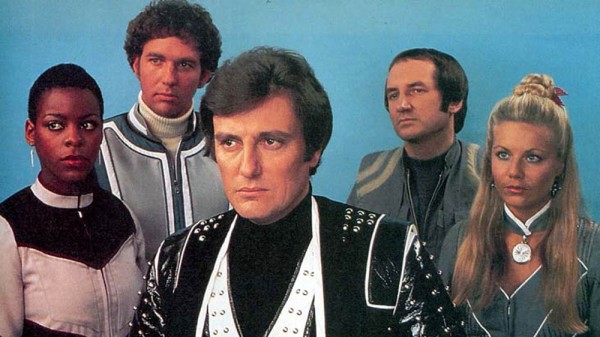Pitched to the BBC in 1977 by Daleks creator Terry Nation as “the Dirty Dozen in space”, Blake’s 7 ran for four hugely successful seasons on BBC One.
As the decades since its shocking series finale have passed, the show may be short on new admirers, but those who remember it do so fondly and recognise the potential of this groundbreaking show.
As the pitch suggests, Blake’s 7 chronicles the adventures of a group of undesirables – thieves, smugglers and fraudsters amongst them – who band together to fight against the totalitarian Terran Federation.
The series opens with its main character, Roj Blake (Gareth Thomas), leading a largely uneventful life in the gleaming Earth capital. Sought out by a resistance group, Blake is left aghast after discovering his current existence is nothing more than a fabrication of the Federation’s making.
Learning he once led a significant resistance movement against the state, and just as his memories begin to resurface, the rebel cell are uncovered and slaughtered by Federation soldiers. Blake is taken into custody, yet fearful of turning their captive into a martyr, the authorities fabricate accusations of child molestation against him.
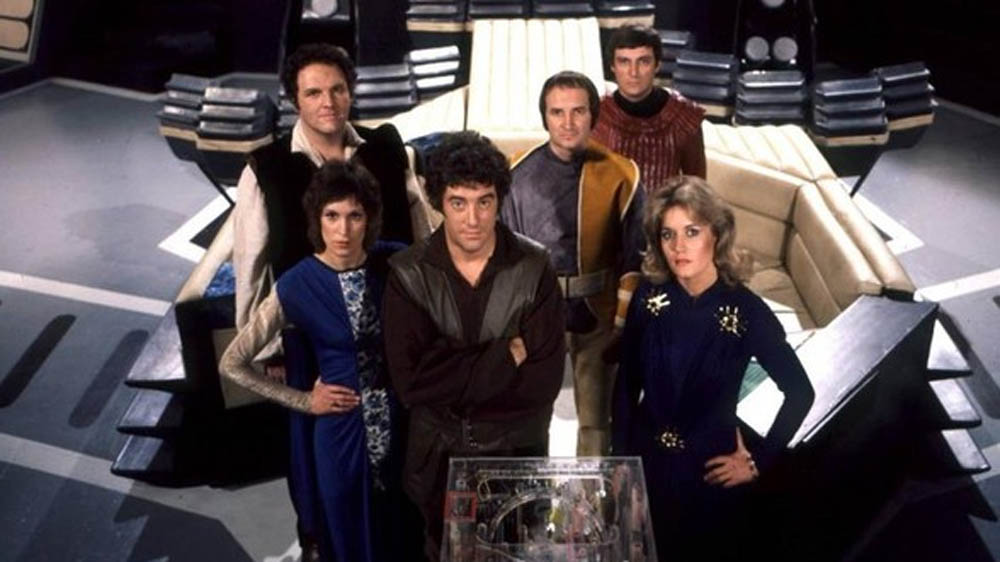
Prosecuted and sentenced to exile on a penal planet, Blake’s chances of a last minute reprieve are scuppered – although his defence lawyer discovers the truth and vital evidence to prove Blake’s innocence – a Federation informer slays the lawyer and his wife before he can be freed.
On route to his offshore prison, Blake and the rest of the motley inmates – including beautiful smuggler Jenna Stannis, likable thief Villa and cold, calculating, computer genius Kerr Avon ( Paul Darrow ) – lead a revolt on route and seize the opportunity to escape aboard a fantastical spaceship, the Liberator. Abandoned in space and furnished with a unique teleport system which provides transport to planet surfaces – the ship is the most advanced in the galaxy.
With the Liberator and its belly of riches, Blake intends to inflict sizable damage upon the Federation – and though hampered by Avon’s general belligerence – sets upon a fanatical mission to tear down the tyrannical Federation state.
Though hindered by its 1970s BBC special effects budget, the show bravely attempted to fuse grand space opera with western grittiness. Try to visual Firefly or Guardians of the Galaxy, but made on a classic Doctor Who budget, and you’ll get a sense of the enormous task the production faced.
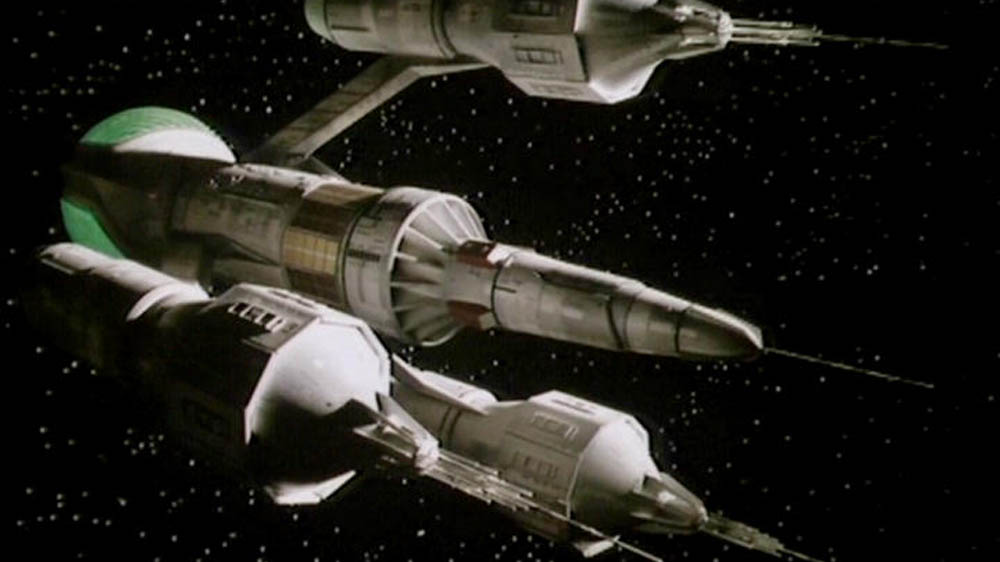
While the special FX budget may not have been the programme’s greatest asset – that said some of the model work in Season 4 is excellent – the series really excelled with its clash of characters.
Gareth Thomas played the thoroughly upstanding Roj Blake with real conviction, yet tinged with a dangerous fanaticism, so you couldn’t always rely upon Blake to follow the morally correct course of action.
Paul Darrow’s intelligent and immersive performance as Avon gave birth to sci-fi’s greatest anti-hero, and despite his consistent belittling, disagreement and general apathy towards Blake’s idealistic crusade – Avon could never truly bring himself to betray the man he reluctantly stood alongside.
Ambiguous as his true intentions were, and you never quite stop believing that at any given moment Avon could actually betray Blake, perhaps for all his bravado he had indeed found someone to believe in.
The anti-Star Trek if you will, Blake’s 7 provided a refreshingly gloomy portrayal of the future, while pioneering a template for future genre TV to follow.
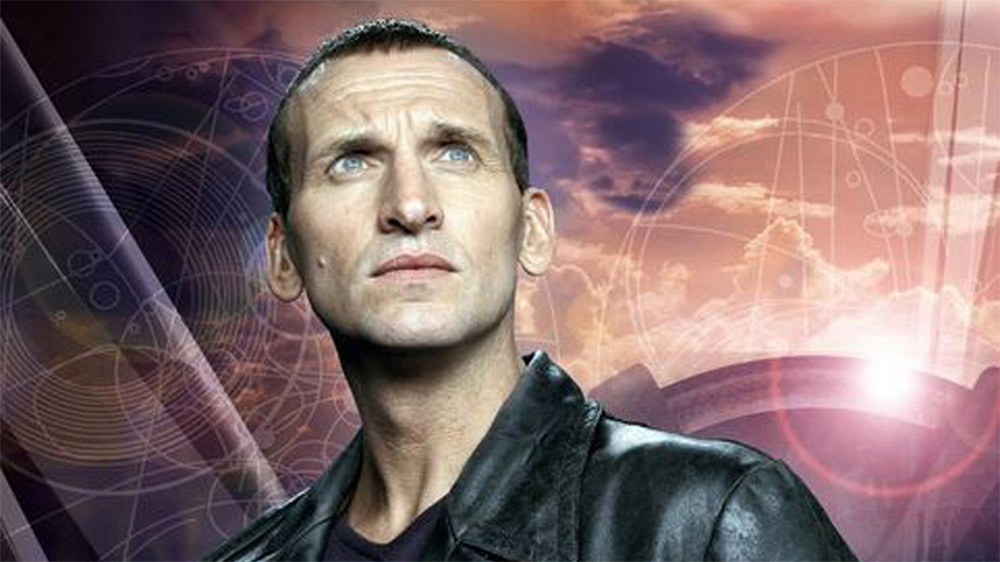
As is increasingly the case today, each season comprised of 13 episodes with an ongoing story arc, generally ending with one hell of a cliff-hanger.
Season 1, for example, left the crew and viewers hanging as a glimpse of the Liberator’s near future depicts it being blown to smithereens. By introducing the deliverer of said prediction, Blake’s 7 also presented us with one of TV’s most unique computerised geniuses.
An initially underwhelming perspex box of flashing lights and wires, Orac pushed levels of prissiness to new heights. Able to communicate with almost every computer system in the galaxy, Orac was never one to shy away from his own superiority – as he himself put it best, “modesty would be dishonesty.”
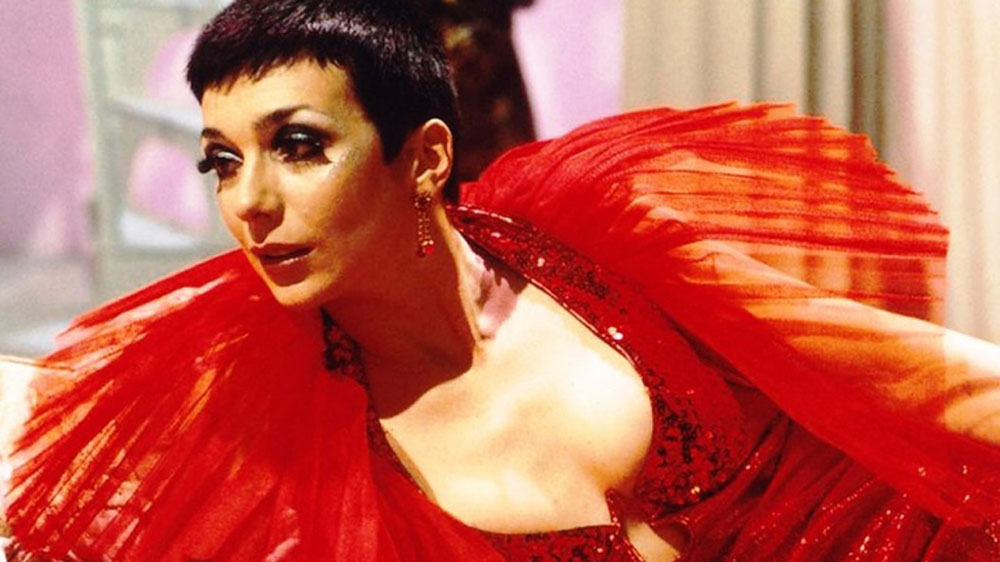
The programme’s real trump card however was the inclusion of the ridiculously sexy, mad, bad and dangerous to know Supreme Commander Servalan. TV’s greatness villainess, and played with great relish by the striking Jacqueline Pearce, this elegant and at times vulnerable ruler is delirious for power. Not beyond destroying entire planets to obtain her objectives, Servalan will exploit every facet of her personality to retain her throne.
While several attempts have been made to revive the show in recent years, only Doctor Who audio stalwarts Big Finish currently produce any brand new adventures to feature the show’s original cast.
UK satellite channel Sky, and cable channel SyFy in the US – who had GoldenEye director Martin Campbell and Heroes creator Tim Kiring attached – both announced plans for a reboot of the BBC TV series a while back, yet sadly neither entered production.
Continued on next page…

